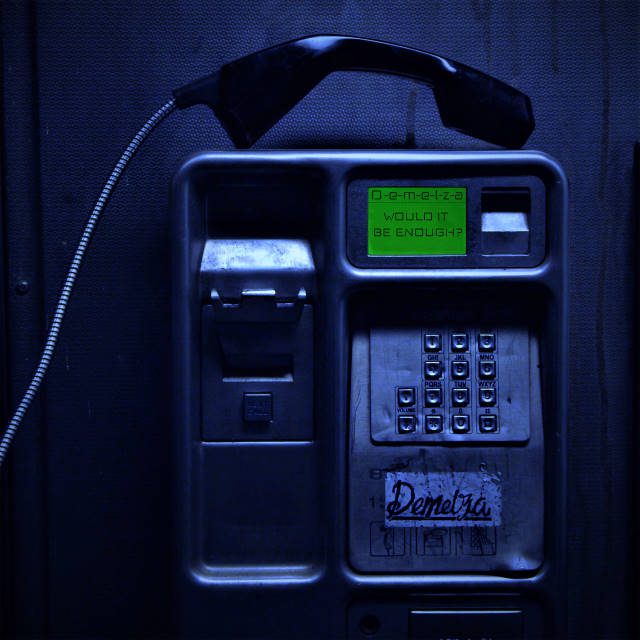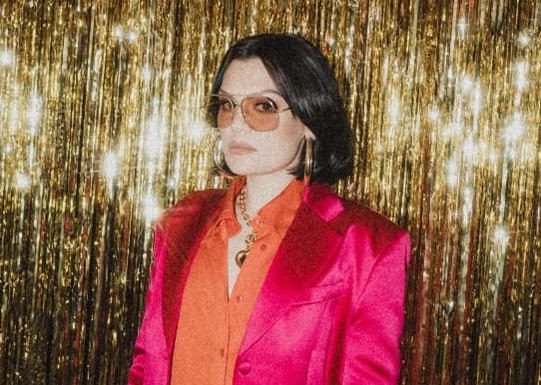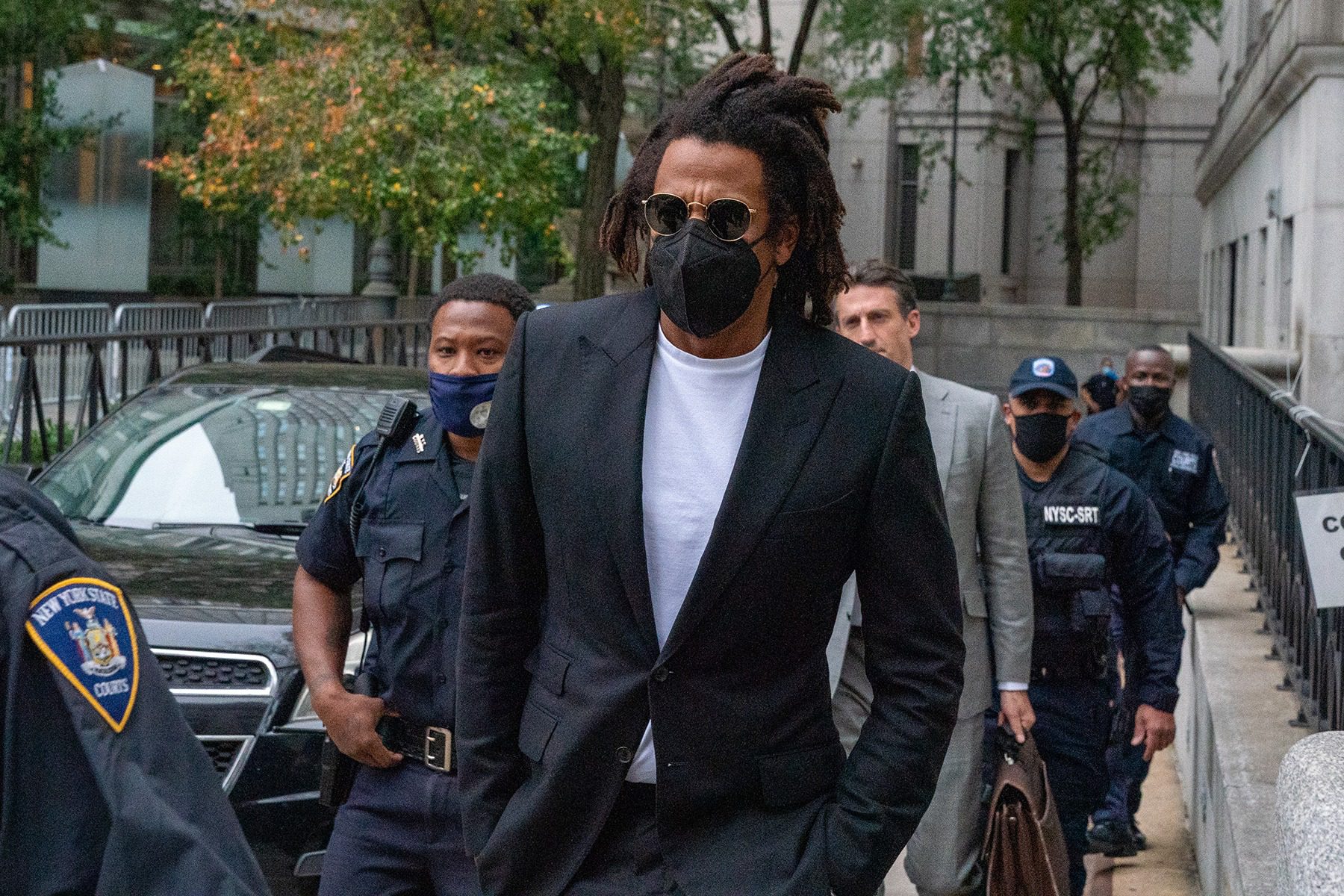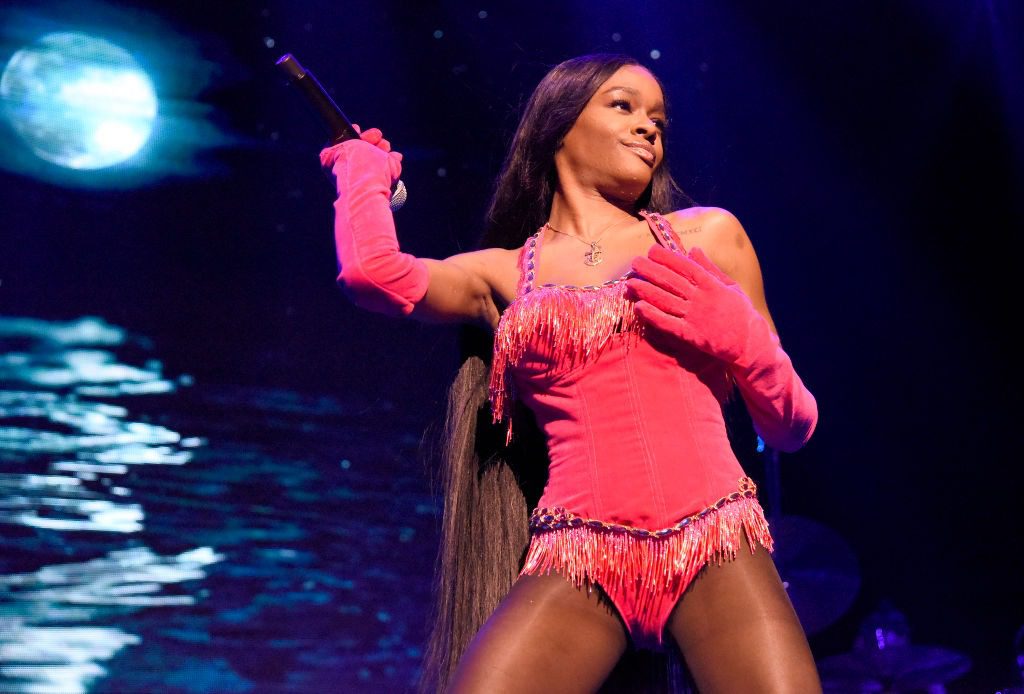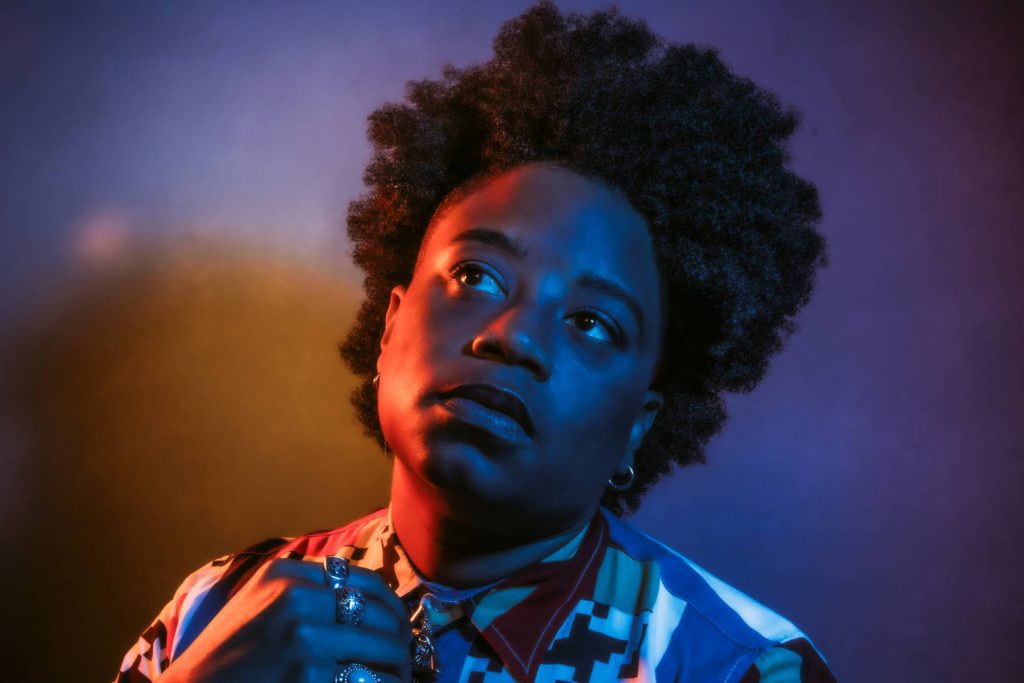
How Amythyst Kiah Revamped Her Rootsy Sound on a Powerful New Album
On the collaborative 2019 project Songs of Our Native Daughters, Amythyst Kiah wrote and sang “Black Myself,” leading her bandmates Allison Russell, Rhiannon Giddens, and Leyla McCalla in a potent anthem about ingrained racism and resilience. The group was creating on the fly, re-centering black stories in roots music. “Black Myself” earned Kiah a Grammy nomination for Best American Roots Song, but it turned out she wasn’t quite done with it.
“The longer you play a song, the more you get settled into it,” Kiah says. “Sometimes you have other ideas, like, ‘That would be cool if I could try this.’ That’s what happened with ‘Black Myself.’ In my heart of hearts, the song is a rock song.”
Kiah went back into the studio with producer Tony Berg and recut “Black Myself,” beefing up the drums and adding an aggressive electric-guitar attack. The plaintive original had a heaviness because of the subject matter, but the new version feels massive by comparison. In addition to having more ideas about how she wanted the song to sound, Kiah also felt like the timing was right to re-release it.
blogherads.adq.push(function () {
blogherads
.defineSlot( ‘medrec’, ‘gpt-dsk-tab-country-article-inbody1-uid0’ )
.setTargeting( ‘pos’, [“mid-article”,”mid”,”in-article1″,”btf”] )
.setSubAdUnitPath(“music//country//article//inbody1”)
.addSize([[300,250],[620,350],[2,2],[3,3],[2,4],[4,2]])
;
});
“We started having this sustained conversation in mainstream media about white supremacy and systemic racism and how it affects all of us — not only black people but white people, indigenous people, immigrants,” she says. “It felt right to continue to push that conversation along.”
Kiah advances that conversation as well as her sound in numerous ways on Wary + Strange, her debut album for Rounder Records. After performing largely as a solo artist and mixing skillful updates of old folk and blues tunes with her originals, Wary + Strange sees Kiah expanding on those foundations with a definite rock edge and a spirit of experimentation.
Before she’d entered the Bluegrass, Old-Time, Country Music program at East Tennessee State University, the Chattanooga native (she now lives in Johnson City, Tennessee) was a self-described “sad girl who bought all my clothes at Hot Topic,” she says, laughing as she cites Tori Amos, Radiohead, and Björk among the artists who captured her attention. “I became fascinated with this form of expression where you can experiment with all different kinds of sounds and ideas.”
Folk, country, and old-time music became her focus as a college student but also offered their own new set of sonic possibilities for Kiah, a queer black woman who didn’t necessarily feel welcomed into the space.
“I had in some instances enjoyed some country music, but there was that part of me that was like, ‘It seems like country music is for a certain type of person and I don’t feel like I’d be accepted, so how can I listen to this music?’” she says. “But once I learned the history about West African influence in country music and bluegrass and string band music, and learning about the Carolina Chocolate Drops and seeing that visual representation, I was like, ‘Oh! Ok! This is cool.’”
Before fully diving into the recording process for Wary + Strange, Kiah met up with Berg (who produced Phoebe Bridgers’ Punisher) in Los Angeles to talk about collaborating. She played the song “Fancy Drones (Fracture Me),” which pleads for a kind of destruction from a lover in order to wake from a technologically induced slumber. The recorded version has Kiah’s blues guitar licks to accompany her pleading vocals, shuffling drums, mellotron, and an ominous wheezing noise that underpins it all.
“While we’re playing [Berg is] like, ‘I have an idea,’” she says. “And he disappeared from the control room and came back with a bass harmonica. So the low, rattling sound on the song is a bass harmonica. There’s no bass guitar.”
Wary + Strange also contains songs in which Kiah addresses with the traumatic events of her mother’s suicide (“Wild Turkey”), struggles with drinking (“Hangover Blues”), and abandonment (“Ballad of Lost”). In the “weird, trippy R&B song” “Sleeping Queen,” a Bill Withers-style groove and off-kilter keys drive an impressionistic set of lyrics about a “siren with broken wings” whom she blames for her demise. It’s Kiah’s favorite approach of employing a strong melody and groove, then connecting it to a heavy message that reveals itself over repeated listens.
blogherads.adq.push(function () {
blogherads
.defineSlot( ‘medrec’, ‘gpt-dsk-tab-country-article-inbody2-uid1’ )
.setTargeting( ‘pos’, [“mid-article”,”mid”,”in-article2″,”btf”] )
.setSubAdUnitPath(“music//country//article//inbody2”)
.addSize([[300,250],[300,251],[620,350],[2,4],[4,2]])
.setLazyLoadMultiplier(2)
;
});
“My favorite songs are the ones that you can easily vibe to it and get lost in it, but if you tune in and listen to the lyrics it’s like, ‘Oh, my God,’” she says. “Rage Against the Machine is a perfect example. How many people have totally rocked out to Rage but you look at the actual lyrics and they’re talking about serious cultural and political issues? There’s something to be said when Paul Ryan listens to Rage Against the Machine while he’s working out.”
Wary + Strange is bookended by two versions of the song “Soapbox,” a brief declaration about trusting the person she’s become and not letting negative voices sway those feelings. “Don’t wanna hear your soapbox speech/Don’t wanna hear how you would do it,” she sings.
“’Soapbox’ really signifies a proclamation of me not allowing my fear of rejection and what other people say or think or do cause me to hold back my authentic self in any way,” she says.
That outlook has become an effective strategy for Kiah, whether it’s trusting her instincts or protecting herself. Even when she’s accompanying those authentic dispatches with head-nodding grooves or blistering guitar, she’s undeniably herself and fearless about the stories she wants to share. Somewhere, someone else is nodding their head and absorbing those messages.
“To have all of this happening over the course of 10 years and slowly come to the realization [that] I do have something to say, I do have a story to tell,” she says. “To have the courage to be able to my story and have people responding to it in such a positive way, it feels really good.”
